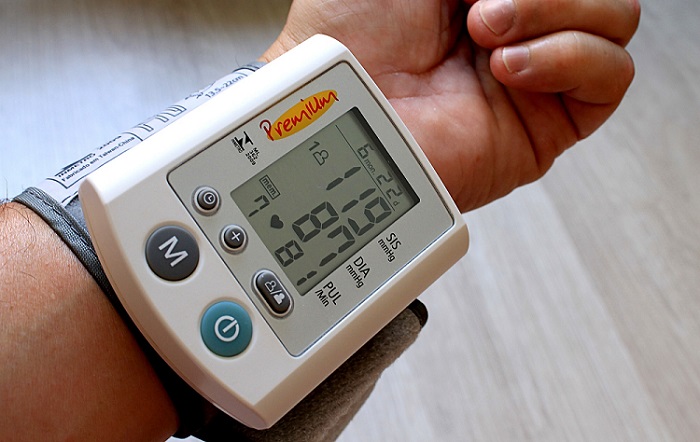Cancer
Intensive blood pressure lowering in seniors reduces cardiac events and deaths
Written by Super UserCompared with 30% of all adults, 75% of those age 75 and older have high blood pressure, but the optimal systolic blood pressure (SBP) treatment target in this older population hasn’t been determined.
For this study, researchers looked at a subgroup of a large, randomized clinical trial (the Systolic Blood Pressure Intervention Trial, or SPRINT). They randomized 2,636 ambulatory adults age 75 or older into two treatment groups—one with an intensive SBP treatment target of 120 mmHg, or one with the standard SBP target of 140 mmHg. People with diabetes or heart failure were not included in the trial.
Of particular concern was whether older patients, who are more susceptible to side effects, could tolerate intensive treatment. Lower blood pressure may cause dizziness or fainting that could lead to falls, a leading cause of death and disability in this age group.
“This subgroup analysis of the SPRINT trial is significant because many physicians and patients have been concerned about blood pressure being too low in the elderly,” said Alfred Cheung, MD, chief of nephrology and hypertension at University of Utah Health Care, and member of the SPRINT Research Group.
After 3 years of follow up in this study, subjects in the intensive blood pressure-lowering group had a significantly lower rate of major cardiovascular events (nonfatal heart attack, acute coronary syndrome not resulting in a heart attack, nonfatal stroke, nonfatal acute decompensated heart failure, and death from cardiovascular causes). This group also had a significantly lower rate of death from all causes.
“These results are reassuring and could very well change current medical practice by lowering the blood pressure goal even in people over 75 years old,” Dr. Cheung said.
The complexities of complications
In addition, the researchers followed both groups for serious complications due to lower blood pressure, including hospitalizations, falls, acute kidney injury, and fainting. But the two groups showed no differences in these complications.
Although nursing home residents were not included in the trial, the researchers characterized 31% of the study population as frail, which mirrors that of the general elderly population who live in the community. The trial’s results showed that intensive blood pressure treatment did not significantly increase the risk for injurious falls and other serious side effects among the frail group.
“These findings have substantial implications for the future of high blood pressure therapy in older adults because of its high prevalence in this age group, and because of the devastating consequences high blood pressure complications can have on the independent function of older people,” Dr. Williamson said.
An inexpensive intervention
Subjects in the intensive blood pressure-lowering group required one additional medication on average to reach their target.
“Most of the medications used in SPRINT were generic, so this is a fairly inexpensive way to help prolong the time that people can live independently in their homes and avoid those common conditions that often cause a person to have to move to higher level of care or an institution,” Dr. Williamson added.
Although the study showed no differences in adverse events between the two treatment groups, it’s not yet clear whether lower blood pressure affects cognitive functions of thinking and memory. Studies investigating the longer-term impacts of treatment are in the works.
In an accompanying editorial, Aram V. Chobanian, MD, of the Boston University School of Medicine, wrote, “Achieving the SBP goal of less than 130 mmHg may be challenging for clinicians, because doing so could require use of additional medications, more careful monitoring, and more frequent clinic visits.”
“Nevertheless, the important results reported in this issue of JAMA cannot be discounted,” he added. “Unless unexpected adverse effects are observed on further examination of the trial data, then major changes in treatment goals for patients 75 years or older with hypertension will be warranted.”




